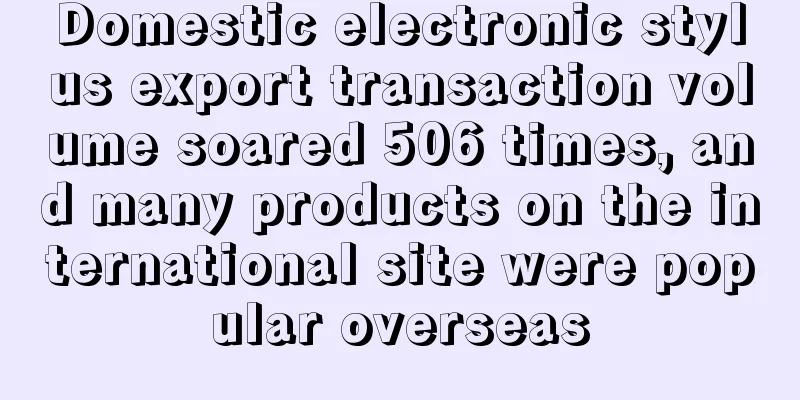Download volume takes the top three places, Chinese e-commerce "surging" in the Spanish market

|
In recent years, China's large-scale cross-border e-commerce platforms have become popular in the European market, and Spain is no exception:
In the Spanish shopping app download rankings released by data.ai in March, AliExpress, owned by Alibaba , ranked first, shein ranked second, and Miravia ranked third;
Kantar published in July the list of the top ten fashion e-commerce platforms with the largest number of Spanish buyers from June 2022 to May 2023, in which shein ranked second, AliExpress fourth, and Miravia was also on the list;
In the ranking of the most downloaded and used shopping apps in Spain (Android and iOS platforms) released by data.ai in August, Temu ranked first in downloads, and AliExpress ranked fifth in the iOS rankings ;
Obviously, Chinese e-commerce platforms have successfully occupied a place in the Spanish market.
Take shein as an example. The company started its business in Spain in 2008. It first experienced a wave of growth during the epidemic, and then in the first half of this year , its sales increased by 40% year-on-year compared with the first half of 2022 , and the number of customers on the platform continued to increase .
Spanish financial platform Fintonic noticed this phenomenon and analyzed the sales data of Chinese platforms AliExpress, Shein, Miravia and Temu through its data analysis department OpenInsigh .
The data comes from an anonymous survey of more than 170,000 randomly selected users aged between 18 and 65, representing a certain age and geographical representation of the Spanish population. The survey shows that in the second quarter of this year, the average amount of spending by Spanish consumers on these platforms was 80 euros. Among them, shein ranked first with 50 euros, followed by Miravia (30 euros), Temu (24 euros) and Aliexpress (19 euros). These figures are even more meaningful, especially considering that the average spending on giants such as Amazon is 35 euros.
However, when analyzing returns, this situation has changed . Shein 's return rate is relatively high, on par with Amazon, while Miravia, Temu and Aliexpress remain at around 6-7%. Aliexpress has to be mentioned here . In June last year, the platform actively adjusted the return process and successfully reduced the return rate (compared with the data in the first half of last year).
According to Fintonic, the regions that are most keen on shopping on these platforms are Catalonia and Andalucia. By age, consumers aged 18-24 dominate shein's shoppers, three times more than other platforms, while Temu attracts consumers aged 55-65 , with twice as many of this customer group as other platforms.
The report also highlights the rise of new Chinese platforms in the country, with a focus on Alibaba's Miravia , which quadrupled its sales in the second quarter of this year compared to the first quarter. Of course, the achievements of the "predecessors" are also unquestionable. AliExpress, which has been active in the Spanish market since 2013, saw its sales in the first half of this year increase by nearly 5% compared to 2022. Chinese e-commerce platforms Spain market |
>>: Temu opens a new site! Officially joins the Southeast Asian brawl army
Recommend
Indian e-commerce company Flipkart is about to go public, and Amazon's advertising share in the US exceeds 10%
Amazon's advertising market share in the Unit...
Less than 4 months after listing, the "hot-selling trader" issued a profit warning!
Some say that the era of cross-border expansion i...
Unable to repay debts! Shares of Cross-border Communication's largest shareholder were auctioned off by the court
Speaking of today's Cross-border Link, who ca...
Net profit increased 375 times in the first quarter, and the big seller is going to build a factory in the United States
Jiuan Medical's revenue in the first quarter ...
What is Huayun International Logistics? Huayun International Logistics Review, Features
Shenzhen Huayun International Logistics Co., Ltd. ...
What is Alibaba AI Real-time Translation? Alibaba AI Real-time Translation Review, Features
On May 18, 2018, Alibaba officially launched the r...
Foreign netizens are laughing! Temu products are a failure again
Temu has become the world's second largest e-...
Microsoft joins hands with Shopify to challenge Amazon!
Earlier this year, Google announced a partnership...
I want to cry but I have no tears! The novice operator fell into a trap and the seller lost 320,000 overnight
In addition to the ubiquitous scams that cause se...
Home Depot, Lowe's post strong fourth quarter as housing category continues to grow
Consumers have been confined to their homes for t...
US e-commerce to grow 50% as sustainable shopping becomes more popular
On April 19, Blue Yonder released the results of ...
What is Jihai Technology? Jihai Technology Review, Features
JiHai Technology (JiHai Technology Shenzhen Co., L...
What is Eurasia Express? Eurasia Express Review, Features
Eurasia Express is a comprehensive service logisti...
Sales to reach £1.7 billion! What will the British buy for Easter?
New research suggests that UK shoppers will spend...
Will you be banned even if you submit to QA? Many Amazon sellers have been affected
Just as sellers were gearing up for the peak seas...









